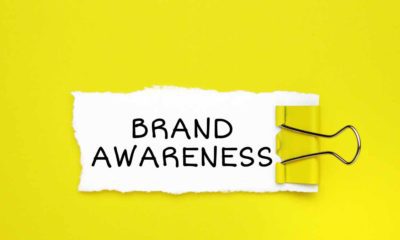Featured
How to Start Affiliate Marketing With No Money
So, you’ve heard about the gold rush in affiliate marketing, and you’re itching to get a piece of the pie. But there’s a catch—you’re strapped for cash. Don’t worry; you’re not alone. Many people are in the same boat, wondering how to dive into this lucrative field without a hefty investment.
In this article, we’ll demystify the process for you. We’ll walk you through the ins and outs of starting affiliate marketing with zero investment, offering practical steps and tips to set you on the path to success. Whether you’re a complete newbie or someone with a bit of experience, this guide is designed to help you navigate the world of affiliate marketing without breaking the bank.
What is Affiliate Marketing?
Affiliate marketing is a performance-based marketing model that allows individuals to earn money by promoting products or services for a company or another individual. As an affiliate, you act as a middleman between the consumer and the seller. You find a product or service that you genuinely like or believe will benefit others, and you promote it. You can do this through various channels such as blogs, social media, or even word of mouth.
The beauty of affiliate marketing is its accessibility; you don’t need to create a product or offer a service yourself. You’re leveraging existing products that have proven market demand. For each sale made through your unique affiliate link, you earn a commission. This commission can be a fixed amount or a percentage of the sale, depending on the terms of the affiliate program. It’s a win-win situation: the company gains a sale they might not have otherwise, and you earn money without the complexities of product creation or customer service.
How Does Affiliate Marketing Work?
At its core, the process of affiliate marketing is straightforward but involves several key steps. First, you’ll need to join an affiliate program that aligns with your interests or expertise. Once approved, you’ll receive a unique affiliate link that tracks any sales generated through it. This link can be embedded in your blog posts, social media updates, or any other online platforms where you can reach potential buyers.
When a consumer clicks on your affiliate link and makes a purchase, the sale is attributed to you, and you earn a commission. The tracking is done automatically through cookies, ensuring that you’re credited for the sale. Commission rates can vary widely depending on the affiliate program and the product being sold. Some programs offer a flat rate per sale, while others offer a percentage of the total sale amount. It’s essential to understand the commission structure of the program you’re joining to know how much you can potentially earn.
[Read More] How To Start Affiliate Marketing For Beginners In 2023
What Does an Affiliate Marketer Do?
As an affiliate marketer, your primary role is to connect potential buyers with products or services they’re interested in. You do this by creating valuable content, targeting the right audience, and using various online marketing strategies to drive traffic and conversions.
How To Start Affiliate Marketing With No Money
- Find an Affiliate Program and Niche
- Choose Your Traffic Channels
- Target the Right Keywords
- Create High-Quality Valuable Content
- Use Social Media to Promote and Grow Your Audience
- Engage With Your Audience
- Scale
Find an Affiliate Program and Niche
The first step in your affiliate marketing journey is to identify a niche that resonates with you. A niche is essentially a specialized segment of the market. It could be anything from “vegan recipes for beginners” to “best hiking boots for winter.” Once you’ve decided on a niche, the next step is to find an affiliate program that offers products or services within that niche. Websites like ClickBank, ShareASale, and Amazon Associates are great places to start looking for affiliate programs. The best part? Most of these programs are free to join, so you can get started without any financial investment.
Choose Your Traffic Channels
After you’ve selected your niche and affiliate program, you need to decide where you’ll promote the products. The platform you choose should align with where your target audience spends their time. If you’re targeting young adults, platforms like Instagram or TikTok might be more effective. If you’re targeting professionals, perhaps LinkedIn or a professional blog would be better. The key is to go where your audience is and to choose a platform that you’re comfortable using regularly.
Target the Right Keywords
Keywords are the terms or phrases that people type into search engines. Targeting the right keywords is crucial for your content to be found. Use free tools like Google Keyword Planner or Ubersuggest to find relevant keywords in your niche. Look for keywords with high search volume but low competition, as these are easier to rank for. Once you’ve identified your keywords, incorporate them naturally into your content, meta descriptions, and even image alt texts.
Create High-Quality Valuable Content
Content is the centerpiece of affiliate marketing. No matter if it’s blog posts, social media updates, or videos your content needs to provide value to the audience. It should solve a problem, answer a question, or entertain. High-quality content not only attracts more visitors but also builds trust, making your audience more likely to click on your affiliate links. Remember, your content should be original and unique to stand out in the crowded digital space.
Use Social Media to Promote and Grow Your Audience
Social media platforms are excellent channels for promoting your content and affiliate products. Each platform has its own set of best practices, so it’s essential to tailor your approach accordingly. For example, Instagram is great for visual content, while Twitter is ideal for quick updates and news. Consistency is key; regular posting can help you grow your audience and increase engagement.
Engage With Your Audience
Posting content is just half the battle; you also need to interact with your audience. Respond to comments, answer questions, and even ask for feedback. This two-way interaction builds a sense of community and trust, making your audience more likely to convert into customers. It also provides you with valuable insights into what your audience needs and wants, allowing you to tailor your future content accordingly.
Scale
Once you start making some income, it’s time to think about scaling your efforts. Scaling doesn’t necessarily mean doing more work but doing more of what’s effective. You could reinvest your earnings into paid advertising to drive more traffic, outsource content creation to focus on strategy or expand to additional platforms to reach a broader audience. The idea is to take what’s working and amplify it to increase your earnings.
[Read More] Three Key Pillars of a Marketing Strategy: What Are They and How to Implement Them
Bottom Line
Embarking on an affiliate marketing journey without initial financial investment may seem like a daunting task, but it’s entirely feasible and can be incredibly rewarding. The key lies in strategic planning and execution. By following the comprehensive steps outlined in this article, you’re not just sidestepping unnecessary expenses; you’re laying the foundation for a sustainable business model. So don’t let a lack of funds hold you back; with dedication, creativity, and strategic planning, you can secure your own slice of the lucrative affiliate marketing pie.
Frequently Asked Questions (FAQs)
Can You Do Affiliate Marketing Without Showing Your Face?
Absolutely, you can engage in affiliate marketing without revealing your identity. Many successful affiliate marketers prefer to operate anonymously or under a brand name. This approach allows you to focus on the product and the value you’re providing, rather than personal branding. However, it’s essential to maintain transparency and authenticity in your content to build trust with your audience.
Is It Too Late to Start Affiliate Marketing?
No, it’s never too late to dive into affiliate marketing. The digital landscape is continually evolving, opening up new niches and opportunities. While it’s true that the field is competitive, the ever-changing nature of the internet means there’s always room for someone who can bring fresh perspectives and unique approaches. So, whether you’re a digital marketing veteran or a complete newbie, there’s an opportunity out there for you.
Is Affiliate Marketing Saturated?
The notion that affiliate marketing is saturated is a common misconception. While certain niches might be highly competitive, the vast digital marketplace offers an array of untapped opportunities. The key is to find a unique angle or a less competitive sub-niche where you can offer real value. With the right strategy, even saturated markets can provide lucrative opportunities.
Do You Have to Be 18 to Do Affiliate Marketing?
Most affiliate programs do require participants to be at least 18 years old due to legal obligations. However, there are exceptions and workarounds. For instance, minors can operate under the supervision of an adult or guardian. It’s crucial to read the terms and conditions of each affiliate program you’re interested in to ensure you meet their age requirements.
Is High Ticket Affiliate Marketing Legit?
Yes, high-ticket affiliate marketing is a legitimate business model and can be extremely profitable. However, it’s not a get-rich-quick scheme. Success in high-ticket affiliate marketing requires a well-thought-out strategy, including a deep understanding of your target audience and the value proposition of the high-ticket items you’re promoting. With the right approach, high-ticket affiliate marketing can offer substantial commissions and long-term profitability.
Josh Dylan is a California-based digital marketing and SEO expert. He grew up in Southern California before attending school nearby. Over his tenure in the marketing industry, J has led SEO-content strategy for multiple sites with millions of UVPM. In addition, J holds extensive experience in both in-house marketing teams and the agency side. With a specialty in search-engine optimization, and a strong knowledge of PPC/SEM, content, analytics, and more, J. Dylan is an all-around expert in all things digital marketing and regularly contributes to industry-leading platforms. As the owner of Something Incorporated (somethingincorporated.com), Josh continues to use his industry expertise to guide small and medium-sized businesses’ marketing strategies.











